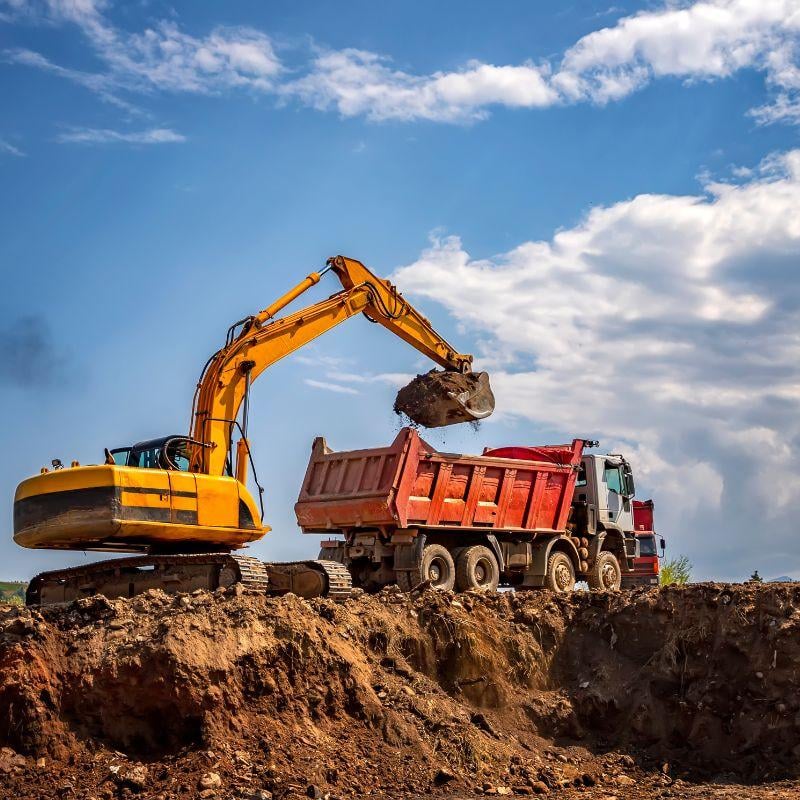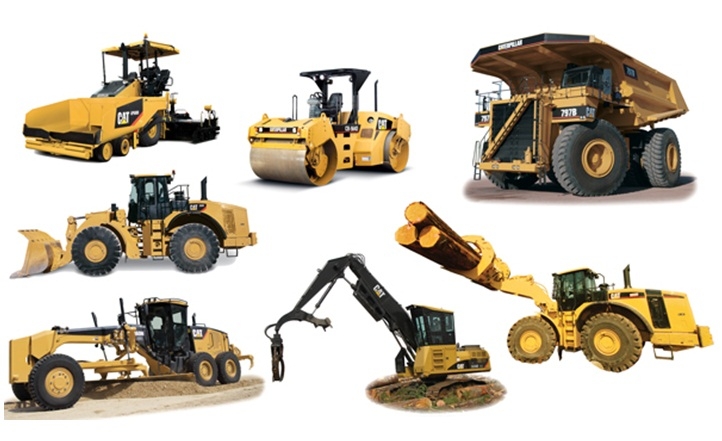Construction Equipment Rentals in Tuscaloosa, AL: Whatever You Need for Your Job Website
Construction Equipment Rentals in Tuscaloosa, AL: Whatever You Need for Your Job Website
Blog Article
Checking Out the Financial Advantages of Renting Building Equipment Contrasted to Having It Long-Term
The choice in between possessing and renting out building tools is pivotal for economic management in the market. Renting out offers immediate cost financial savings and functional versatility, permitting companies to allocate resources extra effectively. In comparison, possession features substantial lasting monetary commitments, including upkeep and depreciation. As specialists evaluate these options, the effect on capital, job timelines, and technology accessibility becomes increasingly significant. Understanding these nuances is crucial, particularly when considering exactly how they line up with specific job needs and monetary techniques. What aspects should be prioritized to ensure ideal decision-making in this complex landscape?

Price Comparison: Renting Vs. Owning
When assessing the economic implications of leasing versus owning building and construction devices, a comprehensive expense comparison is important for making notified choices. The choice between possessing and leasing can substantially impact a business's lower line, and comprehending the linked prices is important.
Renting construction devices typically includes reduced ahead of time costs, allowing companies to designate capital to other functional requirements. Rental prices can gather over time, potentially exceeding the cost of possession if tools is needed for an extended period.
Conversely, owning building and construction devices requires a considerable preliminary financial investment, in addition to ongoing costs such as insurance coverage, funding, and depreciation. While ownership can bring about long-lasting cost savings, it likewise locks up capital and may not offer the exact same level of flexibility as renting. Additionally, owning tools necessitates a commitment to its utilization, which may not always line up with project needs.
Eventually, the choice to possess or rent out must be based on a detailed evaluation of certain project needs, financial capacity, and long-lasting strategic objectives.

Upkeep Costs and Duties
The selection in between renting out and owning building and construction tools not just involves monetary factors to consider but also incorporates continuous maintenance expenditures and duties. Owning tools needs a considerable commitment to its maintenance, which includes regular examinations, fixings, and potential upgrades. These duties can rapidly build up, leading to unanticipated expenses that can strain a budget.
In contrast, when leasing devices, upkeep is usually the duty of the rental firm. This setup allows contractors to stay clear of the economic problem connected with wear and tear, as well as the logistical difficulties of organizing repair services. Rental contracts often include arrangements for upkeep, indicating that contractors can concentrate on finishing jobs as opposed to fretting about equipment condition.
Furthermore, the varied variety of tools offered for rent makes it possible for business to select the current designs with innovative technology, which can enhance efficiency and efficiency - scissor lift rental in Tuscaloosa, AL. By selecting services, organizations can avoid the long-term obligation of devices depreciation and the connected upkeep headaches. Ultimately, assessing maintenance expenses and responsibilities is essential for making an informed decision concerning whether to rent out or possess construction tools, significantly affecting total project prices and functional effectiveness

Depreciation Influence On Possession

A considerable variable to consider in the decision to possess construction equipment is the effect of devaluation on total possession costs. Devaluation represents the decline in worth of the equipment over time, click this site influenced by elements such as use, wear and tear, and advancements in modern technology. As equipment ages, its market value decreases, which can substantially impact the proprietor's financial placement when it comes time to trade the tools or sell.
For building companies, this depreciation can equate to substantial losses if the equipment is not made use of to its fullest possibility or if it lapses. Proprietors must make up devaluation in their financial projections, which can cause greater general prices contrasted to leasing. In addition, the tax obligation effects of depreciation can be complicated; while it might supply some tax obligation advantages, these are often offset by the truth of lowered resale worth.
Eventually, the worry of devaluation stresses the value of understanding the long-term financial commitment included in having building tools. Business need to carefully examine just how commonly they will utilize the equipment and the prospective economic influence of depreciation to make an educated decision regarding possession versus renting out.
Economic Versatility of Leasing
Renting building and construction equipment uses substantial monetary versatility, allowing companies to allot sources much more efficiently. This flexibility is particularly vital in an industry characterized by rising and fall job needs and differing work. By opting to rent out, businesses can avoid the substantial funding outlay required for acquiring tools, preserving capital for other functional requirements.
Furthermore, road grader rental near me leasing equipment allows business to customize their devices options to certain task requirements without the long-lasting dedication linked with possession. This suggests that businesses can quickly scale their devices stock up or down based on anticipated and existing job demands. Subsequently, this versatility lowers the risk of over-investment in machinery that may become underutilized or out-of-date gradually.
Another monetary benefit of renting is the potential for tax obligation advantages. Rental repayments are typically considered operating budget, enabling instant tax reductions, unlike devaluation on owned equipment, which is spread out over numerous years. scissor lift rental in you can check here Tuscaloosa, AL. This immediate expense recognition can further boost a company's cash setting
Long-Term Task Factors To Consider
When assessing the long-lasting needs of a building organization, the decision in between possessing and renting devices becomes more complex. Secret factors to take into consideration consist of task period, regularity of usage, and the nature of upcoming jobs. For jobs with extended timelines, acquiring equipment may appear advantageous due to the potential for lower total expenses. However, if the equipment will certainly not be made use of regularly across jobs, owning might cause underutilization and unneeded expenditure on storage, upkeep, and insurance.
Additionally, technical innovations posture a significant consideration. The building and construction sector is progressing swiftly, with new tools offering improved efficiency and safety attributes. Leasing permits business to access the most up to date technology without dedicating to the high in advance expenses related to purchasing. This adaptability is specifically advantageous for businesses that deal with diverse tasks requiring various kinds of tools.
Additionally, monetary stability plays a crucial function. Possessing devices typically entails considerable funding investment and depreciation problems, while renting enables even more predictable budgeting and capital. Eventually, the option in between renting and having ought to be lined up with the critical goals of the building and construction business, taking into consideration both present and expected project needs.
Conclusion
In final thought, renting out building equipment offers significant monetary benefits over lasting possession. Inevitably, the choice to lease rather than very own aligns with the dynamic nature of construction tasks, enabling for flexibility and access to the most current equipment without the financial burdens connected with ownership.
As equipment ages, its market worth decreases, which can substantially influence the owner's financial setting when it comes time to sell or trade the devices.
Leasing building devices uses considerable monetary versatility, allowing business to designate resources extra efficiently.Additionally, leasing tools makes it possible for companies to customize their equipment options to particular project demands without the lasting commitment associated with ownership.In verdict, renting out building and construction equipment uses substantial monetary advantages over long-lasting ownership. Ultimately, the decision to rent out rather than own aligns with the dynamic nature of building jobs, allowing for versatility and accessibility to the most current tools without the monetary concerns connected with ownership.
Report this page